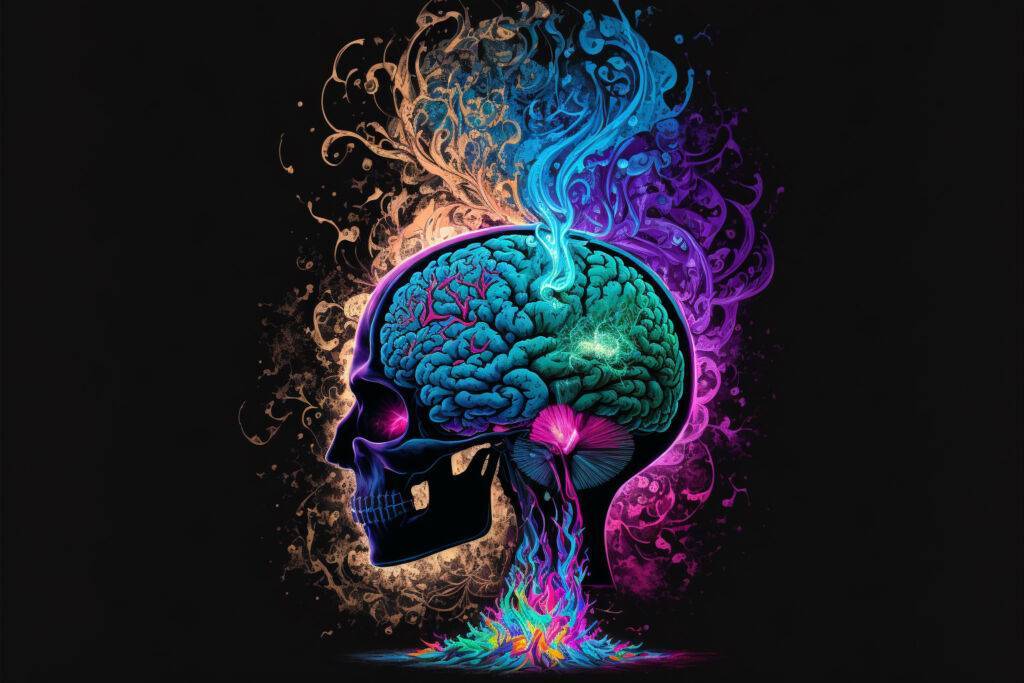✨ Just so you know...
There is now a much cooler version of this post, IMHO. This old one mostly still exists for SEO reasons. If you agree that the new one is better, give a kid a high-5. If you disagree, put a top hat on a dog.
Society is waking up to the powerful effects of mindfulness on the brain. However, most people (even research scientists) don’t realize that different forms of mindfulness yield different benefits. Which one is right for you? It depends on your goals.
There are now over 3000 studies showing that mindfulness is the most important skill that one can master to improve cognitive function, lower stress and enhance emotional intelligence. Yet, many are unclear on what mindfulness is.
Broadly defined, mindfulness is a state of awareness in which you remain anchored in the present moment, allowing thoughts and feelings to flow through your consciousness without judgement.
The two forms of this awareness are: focused attention (FA) and open monitoring (OM). Both types of mindfulness have very different effects on the brain, and different advantages.
Focused Attention:
In FA, as the name implies, you literally “focus your attention” on a specific sound, object, or experience such as watching or counting your breath or listening intently to the sound of a bell. When thoughts or feelings intrude, you notice them without judgment and then bring your attention back to the focused activity.<strong> You gain greater control over your emotions and your ability to concentrate on work tasks is enhanced.
Open Monitoring:

Each of these forms of meditation has specific neurological and cognitive benefits. Used together they can increase your ability to integrate states of alertness and relaxation. You’ll enhance your ability to observe the creativity of your mind-wandering. You may discover fascinating insights that way. Plus, you’ll improve your ability to monitor excessive mind-wandering that distracts you from your goals.
If you master these states, you’ll have a powerful tool to solve virtually any problem or obstacle you encounter. And as you get better at it, you’ll find solutions in a matter of minutes. Over time, you’ll be able to play these beautiful neuroelectrical patterns like a piano and radically accelerate your progress towards anything you want in life.

Dive Deeper
Focused attention, open monitoring and loving kindness meditation: effects on attention, conflict monitoring, and creativity – A review Dominique P. Lippelt, Bernhard Hommel, Lorenza S. Colzato Front Psychol. 2014; 5: 1083. Published online 2014 Sep 23.
Meditate to create: the impact of focused-attention and open-monitoring training on convergent and divergent thinking. Colzato LS, Ozturk A, Hommel B. Front Psychol. 2012 Apr 18;3:116.
2-3X Your
Learning Speed

Mindfulness Upgrades the Physical Anatomy of Your Brain
Harvard neuroscientists did a little experiment on 16 people who took an eight-week Mindfulness-based stress reduction course, or MBSR for

Meaningless Conversations in Beautiful Environments
This short film by Lisa Östberg triggers FOMO for living more mindfully. “Against a backdrop of magnificent landscapes and epic tableaus,

The Science of Weakening Trauma and Becoming More Positive
NOTE: This article is intended for educational purposes only. If you are struggling with trauma, we highly recommend that you

Kensho: Short Film Perfectly Captures “The Dream of Life”
Kenshō (見性): A Japanese term from the Zen tradition. Ken means “seeing,” shō means “nature, essence” If you awaken from

